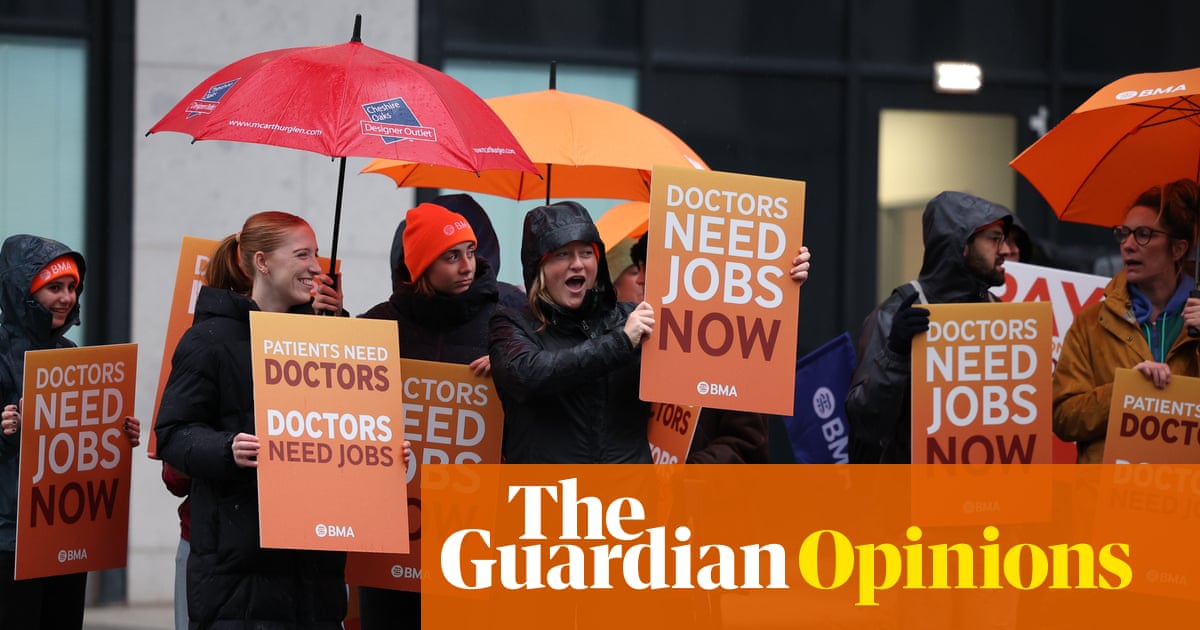
"The story began: Most junior doctors do not support Friday's strike, a poll has revealed as Wes Streeting attacked the British Medical Association for going against the wishes' of its members. The trouble is that the poll showed no such thing. It was conducted by Savanta, a reputable survey research company. Question nine, which asked doctors whether they supported or opposed the strike, found that as many as 69% backed it, while only 12% were opposed."
"It reported a different question, question 10, which asked whether the British Medical Association should call off the strike if the NHS trained thousands more doctors, prioritised graduates with NHS experience and covered the costs of various training fees. Had both questions been reported, Times readers would have been given a significant insight into the current anger of the striking doctors, set against the prospect of a future settlement based on proposals advanced by the health secretary."
Five-day junior doctor strikes began on 14 November. A Savanta poll found 69% of doctors backed the strike and 12% opposed it. The Times front-page headline claimed most doctors opposed the strikes but reported only the result of a different question about whether the BMA should call off the strike if the NHS trained thousands more doctors, prioritised graduates with NHS experience, and covered training fees. The poll was commissioned by the Department of Health, which provided the Times with the question favourable to government proposals and withheld the direct support figures. Savanta is a member of the British Polling Council, which requires transparency and public corrections.
Read at www.theguardian.com
Unable to calculate read time
Collection
[
|
...
]